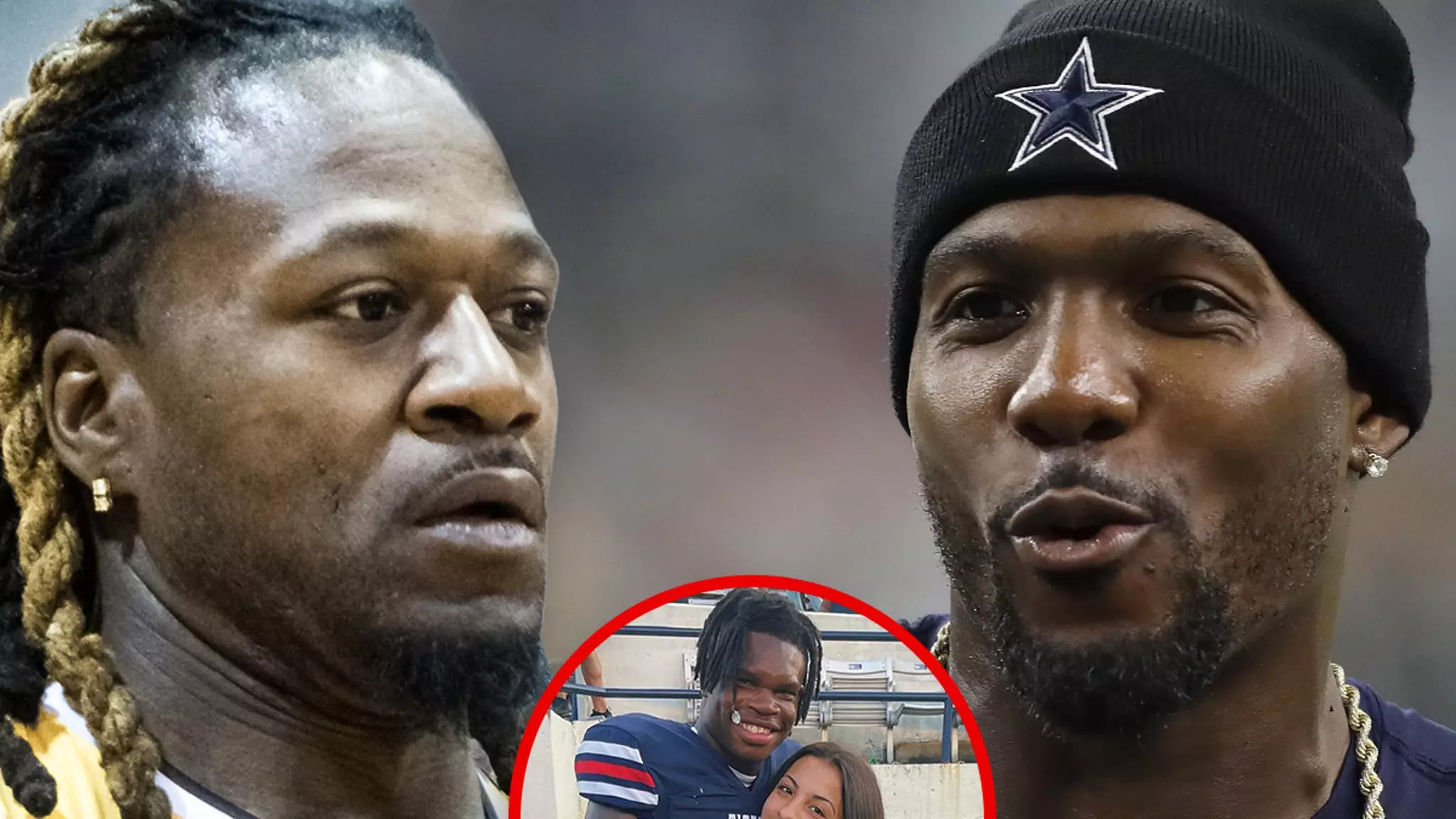In the age of social media, where athletes’ lives are scrutinized in real-time, public commentary can have a significant impact on personal relationships. Recently, Pacman Jones openly addressed the unsolicited opinions regarding Travis Hunter’s engagement to Leanna Lenee. In the latest episode of “Pacman Jones Show,” Jones expressed his discontent toward former NFL player Dez Bryant’s harsh critique of the couple’s relationship, calling for an end to the public’s judgement and commentary on couple dynamics that are inherently personal. This incident raises crucial questions about the boundaries of public commentary and the implications it has for the individuals involved.
Jones’s passionate plea highlights the complexity of being in a relationship under the NFL spotlight, where public perception often oversimplifies the gravity and nuances of personal experiences. By asserting that “you don’t know what she pleases him behind closed doors,” Jones underscores the need for confidentiality concerning intimate relationships. While public figures choose to showcase aspects of their lives, there are still realms of privacy that should be respected. In this scenario, Hunter and Lenee have attracted attention not just for their statuses but how they interact in public, prompting commentary that often misrepresents their relationship.
Dez Bryant’s assertions about Hunter needing to reevaluate his relationship with Lenee are indicative of a broader trend in which social media feedback can dangerously influence public perception. Jones firmly critiqued this notion, stating, “I’ve never seen grown f***ing athletes that goes to Twitter and talks about another player relationship.” His commentary serves as a reminder that athletes are not merely public figures but humans with vulnerabilities and complex lives. When someone like Bryant, who has a massive following, takes to social media with critical views, it not only adds pressure to the athletes but also potentially skews public perception of their relationships.
It is essential to remember that every individual has different needs and preferences, particularly in romantic relationships. Jones’s call for restraint emphasizes that love and partnership are not one-size-fits-all concepts. Hunter’s decisions regarding Lenee are based on a personal understanding that outsiders can hardly grasp. When external voices offer unsolicited advice, they often fail to consider the context, emotional depth, and background that shape the couple’s dynamics. Furthermore, a person’s worthiness to engage in discussions about relationships should be weighed against their understanding of the complexities involved.
Ultimately, Jones’s ardent defense of Hunter serves not only to defend the individual’s right to personal happiness but also calls for a culture that prioritizes respect and understanding over unsolicited opinions. As fans and commentators tune in to the lives of public figures, a mindful approach is necessary—one that respects the sanctity of personal relationships and recognizes the human experience behind the athlete’s facade. This incident serves as a poignant reminder that while public personas invite scrutiny, the essence of individual relationships remains deeply personal, deserving of respect rather than judgment.

Leave a Reply